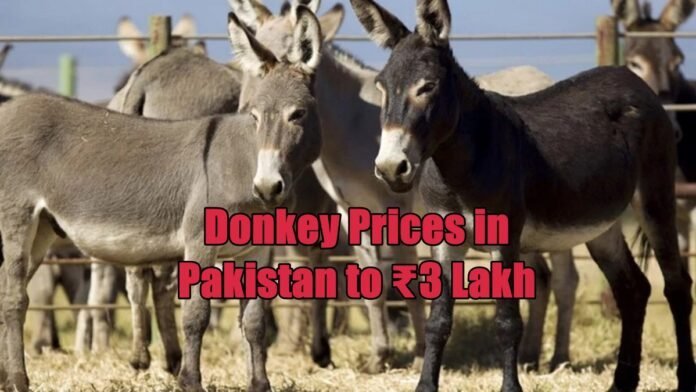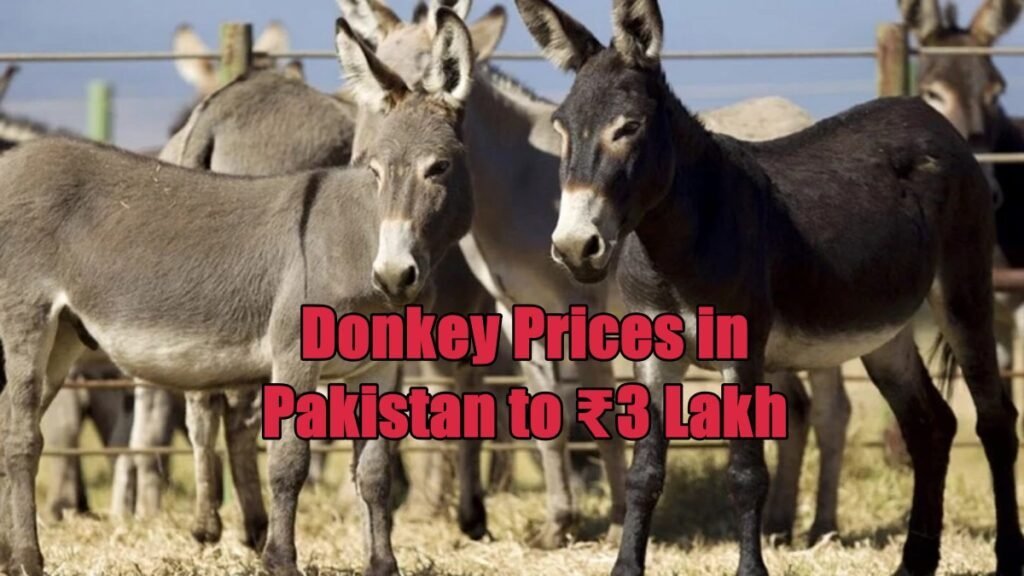
Islamabad: The price of donkeys in Pakistan has skyrocketed, reaching a staggering 3 lakh Pakistani rupees per animal due to an unprecedented surge in demand from China. This significant price hike has led to a sharp decline in local buyers, particularly in Karachi’s well-known Lehari Donkey Market, where the once-thriving trade has taken a hit.
According to media reports on Monday, the spike in prices is driven by China’s growing appetite for donkey skins, which are used extensively in cosmetics and traditional medicine production. Donkey hides are a key ingredient in a Chinese traditional remedy known as ‘E Jia,’ used in various treatments and believed to have numerous health benefits. Additionally, these skins are used in the production of high-end cosmetics, contributing to the global demand for this unusual commodity.
The Express Tribune highlighted that this sudden surge in prices has not only affected local buyers, who are now struggling to afford donkeys for agricultural and transport purposes, but has also turned donkeys into a valuable export item. Traders looking to capitalize on the rising demand are focusing on the lucrative Chinese market, causing a shortage in local markets where donkeys were once purchased for daily use by farmers and businesses.
The ripple effects of China’s demand for natural resources like donkey skins are being felt across Pakistan’s economy, reflecting a broader global trend where natural products are increasingly sought after for cosmetics and pharmaceutical uses. With China continuing to dominate the market, Pakistan’s domestic prices are expected to remain high.

In June 2023, Pakistan took an official step to address this growing export demand by approving the trade of donkey hides to China, alongside other goods such as cattle, dairy products, and chillies. As prices rise, many in Pakistan’s local markets fear that donkeys, once seen as a simple utility animal, have now become a luxury commodity due to their increasing value on the global stage.


















































